What went down at that LAFCA vote — as told by two voters
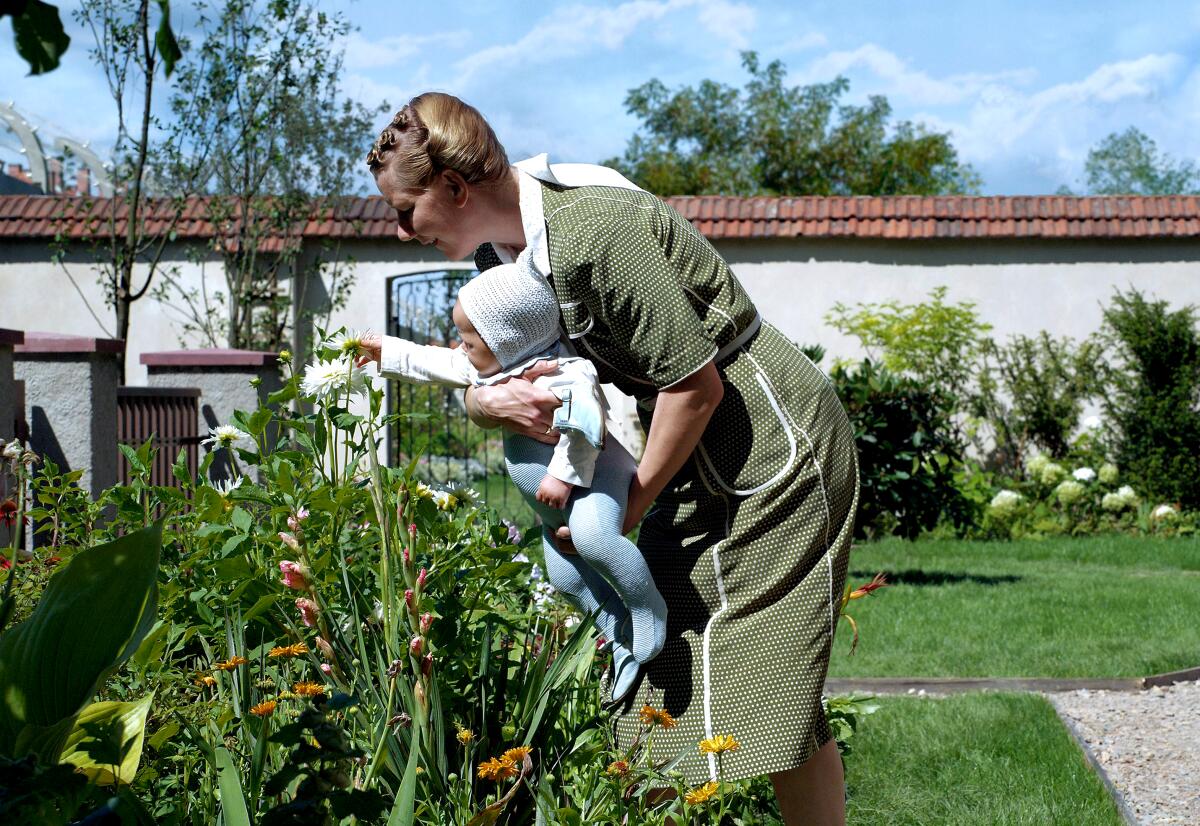
- Share via
Jonathan Glazer’s “The Zone of Interest” was the big winner Sunday at the Los Angeles Film Critics Assn.’s year-end voting meeting, taking prizes for best picture, director and music. The organization also honored four women in its acting categories, which, for the second year in a row, were not categorized by gender: Sandra Hüller (“Anatomy of a Fall,” “The Zone of Interest”) and Emma Stone (“Poor Things”) were named top lead performers, while Rachel McAdams (“Are You There God? It’s Me, Margaret”) and Da’Vine Joy Randolph (“The Holdovers”) won supporting performance honors. Andrew Haigh won the screenplay prize for his drama “All of Us Strangers.”
Times staffers Mark Olsen, Michael Ordoña, Joshua Rothkopf and Jen Yamato all participated in Sunday’s voting, along with Times freelance contributors Robert Abele, Carlos Aguilar, Tim Grierson, Amy Nicholson and Katie Walsh. Times film critic Justin Chang and entertainment columnist Glenn Whipp, who also voted in the awards, sat down after the meeting to debrief the group’s choices.
JUSTIN CHANG: Several months ago, Glenn, as the end credits rolled on the first Cannes Film Festival screening of Jonathan Glazer’s “The Zone of Interest,” a critic friend leaned over and muttered, “Well, that’s a hit.” At the time, utterly shaken by the movie and with Mica Levi’s shrieking, ascending score ringing in my ears, I couldn’t tell if my friend was being sarcastic or sincere. A Holocaust drama of eerie restraint and uniquely disquieting power, Glazer’s movie was surely doomed to commercial oblivion. But here in the hothouse of Cannes, where audiences aren’t easily turned off by slow-drip pacing or unflinching dissections of human evil, “The Zone of Interest” was clearly going to be one of the triumphs of the festival. (It went on to win the Grand Prix, a.k.a. second place, at Cannes.)
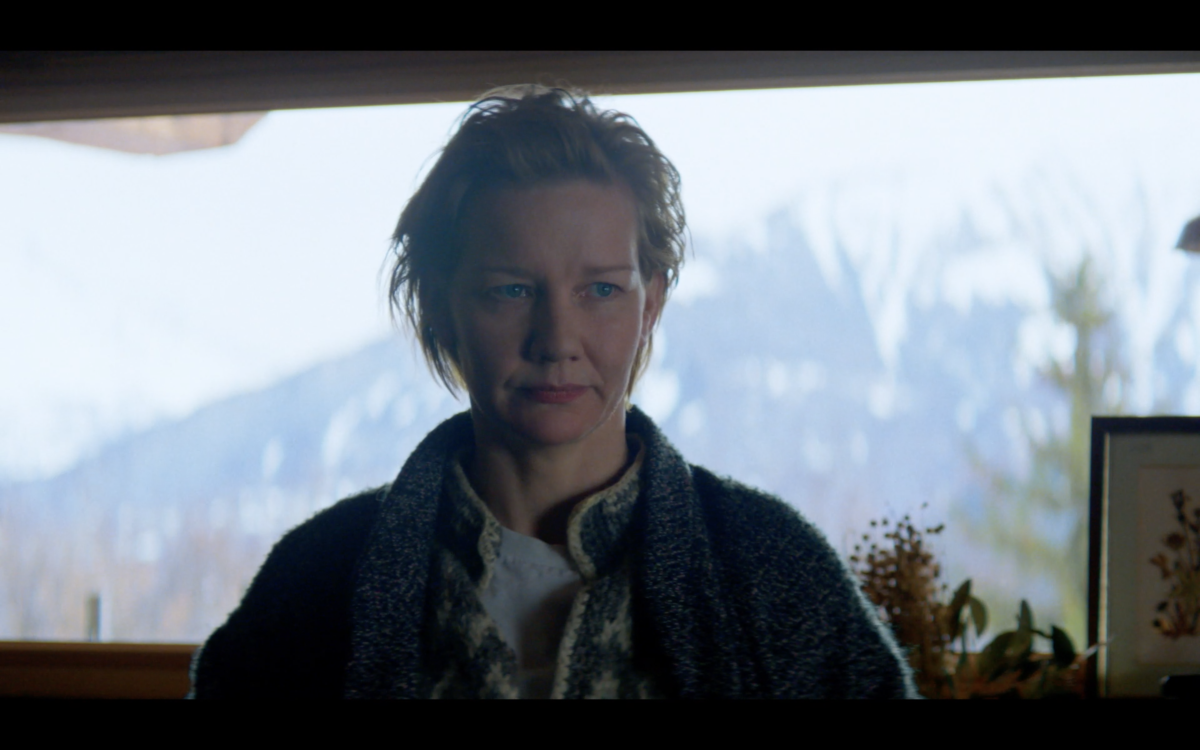
It certainly proved a hit with the Los Angeles Film Critics Assn. on Sunday, winning four prizes, including best picture and director for Glazer. Levi’s work was recognized in the music/score category, along with a special mention for Johnnie Burn’s sound design, an acknowledgment of their uniquely conjoined achievements in a movie whose soundscape is as rich and hypnotically detailed as its images. And we named German actor Sandra Hüller one of our top lead performers, recognizing both her role as a Nazi hausfrau in “The Zone of Interest” and her brilliantly layered turn as a woman on trial for her husband’s murder in another Cannes favorite, the Palme d’Or-winning “Anatomy of a Fall” — two pictures that, in their very different ways, offer less-than-ringing endorsements for the institution of marriage.
“Anatomy of a Fall” was also recognized for Laurent Sénéchal’s razor-sharp editing and was named best film not in the English language. (Should it have been disqualified in that category for featuring a good smattering of English, as well as French and German? Eh, semantics.) But then, LAFCA’s love for international cinema has always been one of my favorite things about it, and you could see that in a field of winners that also included a French-language documentary, Frederick Wiseman’s delectable “Menus-Plaisirs — Les Troisgros,” and a Japanese animated film, “The Boy and the Heron,” from the great anime master Hayao Miyazaki.
What does it all mean? Prognosticators will, of course, answer that question with reams of awards-season analysis, though I’m more interested in what it says that “The Zone of Interest” won best picture and Christopher Nolan’s “Oppenheimer” — one of the most popular movies of the day, even though it didn’t ultimately win a single award — was our best picture runner-up. Here are two of the most dramatically and formally daring World War II dramas in recent memory, one a blockbuster biopic (an actual hit), the other a mesmerizing art-house stunner. And both movies, in their own damning way, are about the atrocities we cannot see, the barbarism we too easily shrug off. Call me crazy, Glenn, but given the present state of the world, I can’t help but feel that’s why they resonated with us — and also why I hope “Zone” resonates all the more when it opens in theaters this week. It may not be a hit, but good God, does that movie land.
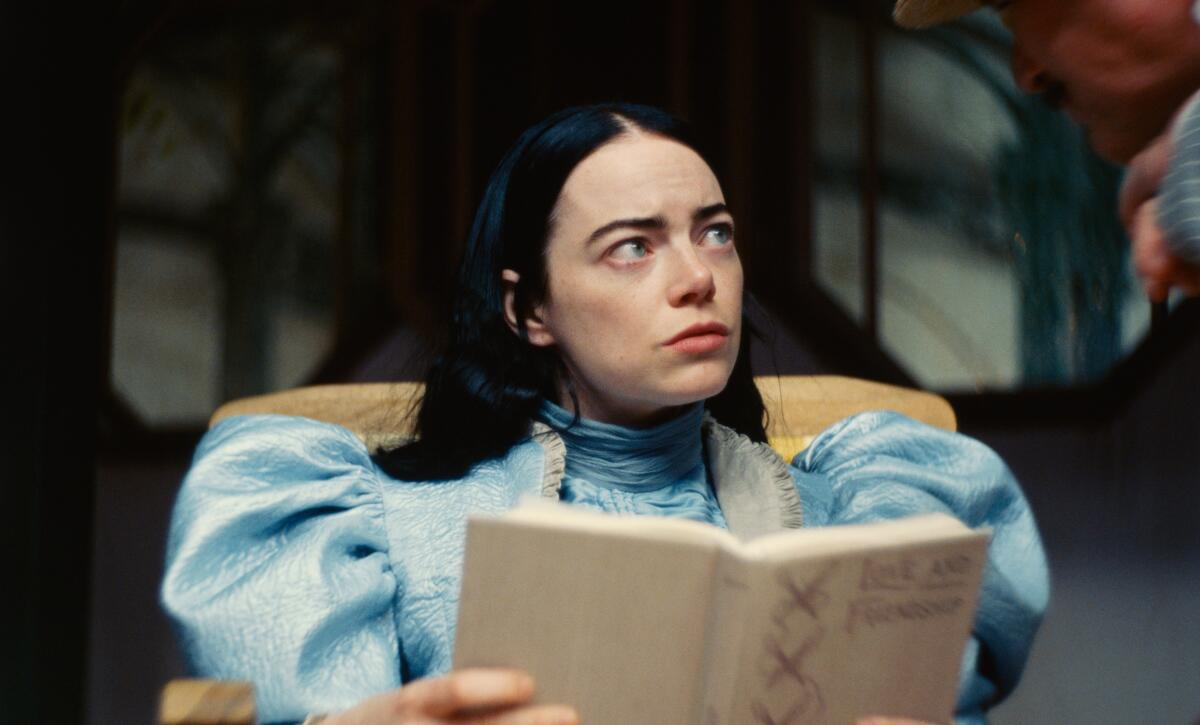
GLENN WHIPP: I remember texting you a few days ago, Justin, saying that, given how good this year has been for movies, it’d be almost impossible to come away from our vote with anything less than an exceptional slate. And it was clear to me from our first award, cinematography, that I’d spend the day having to content myself often applauding choices that weren’t my absolute favorites, but, nonetheless, had considerable, inarguable merit. How do you begrudge “Poor Things” director of photography Robbie Ryan winning over all the dynamic, eerie and emotionally evocative images Rodrigo Prieto captured in “Killers of the Flower Moon”? You can’t. You just whip-pan off to the next category, hoping your No. 1 choice might prevail.
I saw “The Zone of Interest” a second time last week at the Aero Theatre as part of a double-bill with Glazer’s first film, the exhilarating “Sexy Beast.” And it hit just as hard on repeat viewing, this movie about a contented family that wants to have a nice home with a beautiful garden, a good, stable job with the bonus of time off for relaxing vacations, things they’ve worked hard for, things they believe they deserve. And once you — and I’m personalizing this now, because the film requires this of its audience — once you have these things, what are you willing to disassociate from in order to keep them? Indifference is the root of hideous evil.
“The Zone of Interest” is set in the past but very much about the present and how humans accept the unacceptable when it suits their interests. As such, I’m thrilled we honored it repeatedly, even though after we gave Glazer the award for director, I hoped we’d pivot to another historical drama in conversation with modern perils, “Oppenheimer.” Nolan’s sprawling, staggering achievement came close in a number of categories in our voting, including runner-up for best picture, but won no prizes. As an accomplished work of art and, with “Barbie,” as a much-needed source of rejuvenation for movie theaters, “Oppenheimer” in large part defines the year in film. I’m disappointed we didn’t acknowledge it ... and yet, how do you complain? (We’re film critics, Justin. We can’t help ourselves, right?)
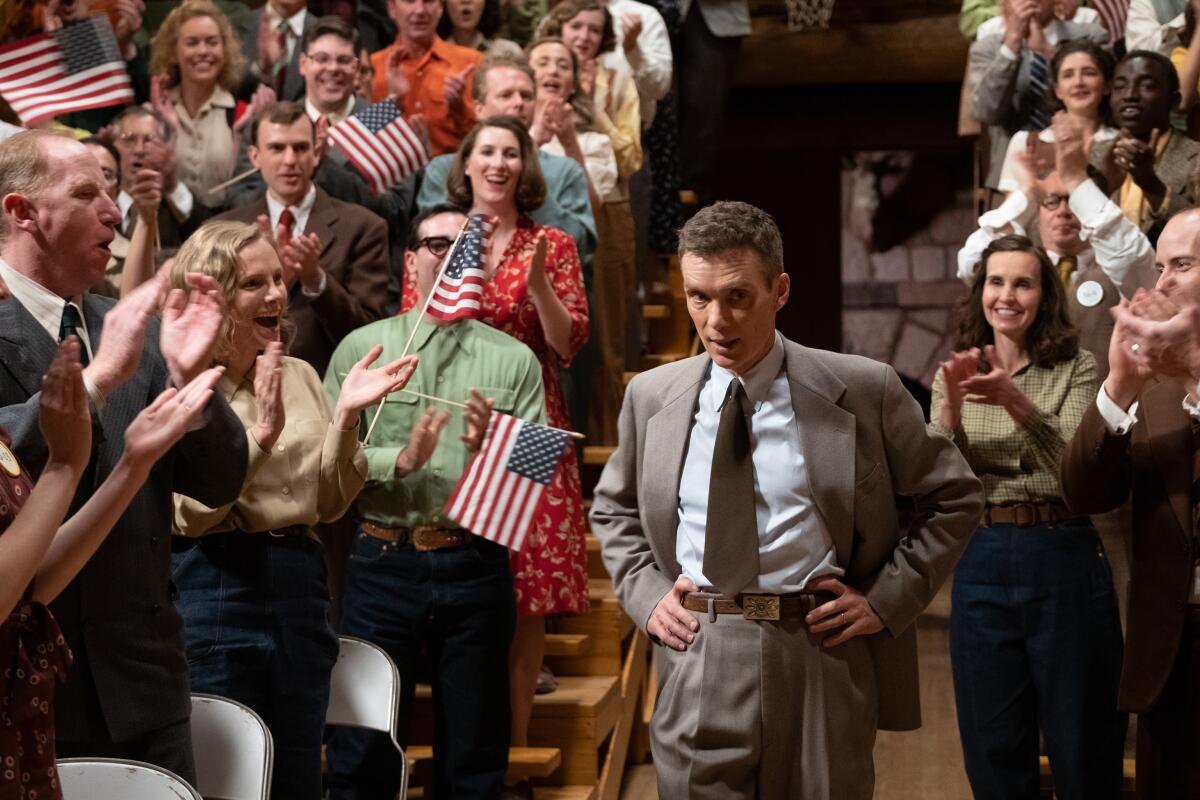
CHANG: In that spirit of mutual complaint, Glenn, I share your disappointment that “Oppenheimer” didn’t win something outright, despite Nolan’s strong showing in the director race and solid support for Cillian Murphy, Robert Downey Jr. and Matt Damon in the acting categories. (Even David Krumholtz got some love for his brief but memorable performance as physicist Isidor Isaac Rabi.) Frankly, I’m still smarting over Nolan’s narrow loss 15 years ago in our directing race for “The Dark Knight,” which itself narrowly lost best picture to the very deserving “Wall-E.” We haven’t seen that kind of mainstream one-two punch in the years since, though it’s worth noting that LAFCA has historically had a populist streak: We are the critics’ group, after all, that gave best picture to “Star Wars” and “E.T.”
A best picture victory for “Barbie” or “Oppenheimer” — or even both, since ties in this category are not exactly unheard of — would have been a throwback to that blockbuster era. And for a while, it didn’t seem too far outside the realm of possibility. “Barbie,” which won an award for Sarah Greenwood’s pinktastic production design, was also a runner-up for cinematography, music and supporting performance for Ryan Gosling. Frankly, given his early surge in the voting, I was shocked that Gosling didn’t ultimately win outright; in the end, I suppose, Kenough wasn’t Kenough. There was some joking in the room about how perfect it would have been if he and Rachel McAdams (“Are You There God? It’s Me, Margaret”) had both won, allowing us to dream of an internet-breaking “The Notebook” reunion. But it wasn’t to be; instead, McAdams breezed right past Gosling and into the winners’ circle with Da’Vine Joy Randolph (“The Holdovers”).
Those keeping score at home will notice that, with McAdams and Randolph in supporting and Hüller sharing lead performance honors with the marvelous Emma Stone (“Poor Things”), LAFCA honored four female actors and no male actors this year — an outcome we knew could theoretically happen when we switched to gender-neutral acting categories a while back, but which sneaked up on us here, in the best possible way. I hope it will silence the naysayers who complained that women would win fewer awards in a gender-blind competition. And to your earlier point, Glenn, about seeing your own personal favorites lose to eminently respectable alternates, I can totally live with the fact that my own favorite lead performer of the year, Andrew Scott, managed to score only a runner-up slot for his work in Andrew Haigh’s “All of Us Strangers.”
That movie was, for me, the year’s best, a sublime ghost story in which a parent-child weepie and an achingly tender romance are layered into a kind of metaphysical mille-feuille. As such, I’m grateful that we honored Haigh for his delicate (yet piercingly direct) screenplay, adapted from Taichi Yamada’s novel “Strangers” but told in a cinematic language all its own.

WHIPP: That screenplay category, for me, was a case of reading the room and realizing that if a movie I loved — and here it was actually two movies, “All of Us Strangers” and Celine Song‘s beautifully told romance “Past Lives” — kept placing third or fourth in a category, now was the time to try to push it through to a win. And it’s not altogether surprising that it was “All of Us Strangers,” a movie that works on your emotions on so many levels, that prevailed.
That prize proves that LAFCA has a soft, gooey center, Justin. We contain multitudes. We can reward “The Zone of Interest” and “All of Us Strangers.” How we passed up that “Notebook” reunion, I don’t know. Apparently, McAdams and Gosling didn’t particularly get along while they were making that movie. Think of the healing that could have happened at our dinner.
As for Song, she won our New Generation honor, the final award of our long voting day, one that sometimes feels like a something of a consolation prize given to someone who came close to winning one — or more — categories. But then I remember that we’ve given this award to the likes of Greta Gerwig, Alexander Payne and Chloé Zhao at the outset of their careers, and I have every confidence that Song will join them as a preeminent filmmaker. Her next movie, titled “The Materialists,” will again be backed by A24. From details shared with me in confidence, it sounds extraordinary. Are Gosling and McAdams available?
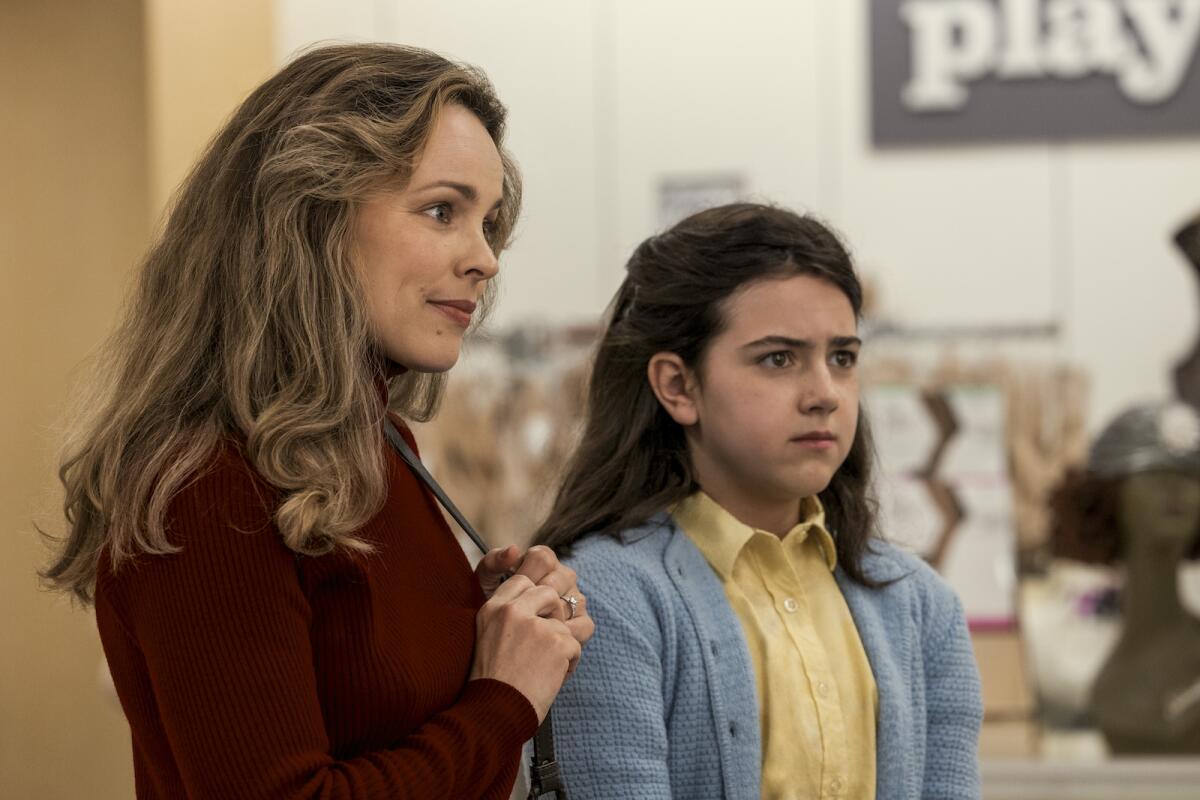
You noted the all-female acting slate, Justin, and, like you, I didn’t really think about it until someone pointed it out during our lunch break. Stone, Hüller, McAdams, Randolph — if you take exception to that lineup, you probably had your masculine identity hurt by “Barbie.” There was a discussion — and a vote — about including Hüller’s chilling turn in “The Zone of Interest.” Was it lead or supporting? When you see the film, it’s clear who’s running that house. Hüller is a lead in that movie.
But I’ve never been one to get all that worked up about the whole “category fraud” aspect of awards season. The scare quotes only hint at how overwrought these discussions can become among obsessives and stans. Lily Gladstone, for instance, placed high in our vote for lead performance for her unflinching work in Martin Scorsese’s epic “Killers of the Flower Moon,” yet she did not win. Then we voted for supporting, and, again, she earned a great many votes, this time finishing as a runner-up.
Gladstone is in less than a third of the 3½-hour movie. But also: Gladstone is the movie. When I saw “Killers of the Flower Moon” in June, someone asked if she was lead or supporting, and I answered, “supporting.” After I saw it a second time, I changed my mind. One thing we can agree on: She’s phenomenal as the heart of Scorsese’s tragedy. And I’d like to think there’s room for intelligent discourse about her work.
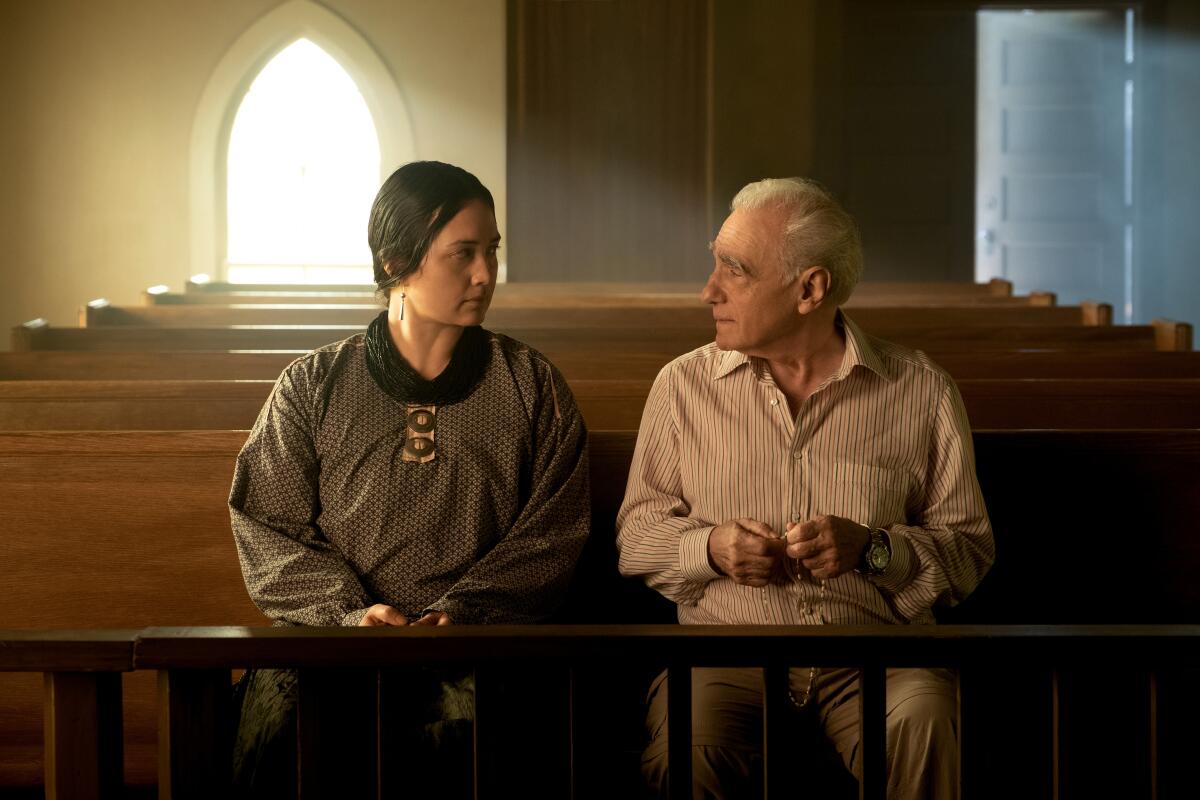
CHANG: I’m going to go out on a limb and suggest that our shutout of the roundly admired “Killers of the Flower Moon” had something to do with the fact that it had already won best picture from our fine colleagues in the New York Film Critics Circle. We sometimes do align with our East Coast counterparts (this year, we all agreed on Randolph, “Menus-Plaisirs” and “The Boy and the Heron”), but in general, I’d say LAFCA runs cooler on late-career Scorsese than the NYFCC does. Scorsese was one of our New Generation winners too, way back in 1976, a year when he would have been a more-than-respectable best director choice for “Taxi Driver.” He went on to win our best picture prizes for “Raging Bull” (1980) and “Goodfellas” (1990), but since then, zilch. (And now I’m having flashbacks, Glenn, to you and me and not very many others pushing 2016’s “Silence,” his greatest film of the 21st century, in every category we could.)
All that being said, the strength of support for Gladstone in both the leading and supporting categories — and we specifically voted on lead performance first, to make sure that she and other actors weren’t being classified as supporting by default — speaks to the depths of the group’s admiration for her performance, even if other actors ultimately drew more support in the voting. It’s possible too that after we chose Gladstone as best supporting actress for her heartbreakingly great performance in Kelly Reichardt’s “Certain Women” (2016), LAFCA simply wanted to award someone new.
All this procedural talk, all these arguments about category confusion, are of course an enormous distraction from the art itself, and it’s fun and tedious to parse in equal measure. I’d much rather end by noting, in no particular order, just a few of the many candidates that drew passionate voting support Sunday, even if they didn’t ultimately win or place: the performances of Greta Lee (“Past Lives”), Koji Yakusho (“Perfect Days”), Virginie Efira (“Other People’s Children”), Hong Chau (“Showing Up”), Charles Melton (“May December”), Penélope Cruz (“Ferrari”), Rosamund Pike (Saltburn”), Glenn Howerton (“BlackBerry”) and Mark Ruffalo (“Poor Things”). Acclaimed international titles like Aki Kaurismäki’s “Fallen Leaves,” Tran Anh Hung’s “The Taste of Things” and Takashi Yamazaki’s “Godzilla Minus One.” Superb debut features like A.V. Rockwell’s “A Thousand and One” and Raven Jackson’s “All Dirt Roads Taste of Salt.” They all deserve to be hits in my book.
WHIPP: They’re all deserving, Justin. Did I mention that it’s been an exceptional year for film? Thinking about it gets my pulse going. Right now, my heart rate is much higher than the 55 beats per minute I try to maintain while voting. And, yes, this is me saying that I stumped for David Fincher’s masterful thriller “The Killer” in a good many categories: music, editing, cinematography. Too bad we don’t reward costume design because Michael Fassbender’s German tourist look will be in my playbook the next time I visit Paris. “Never yield an advantage,” Fassbender intones. “Stick to your plan.” Rules to live by if you’re an assassin, I suppose, but not so helpful as a LAFCA voter where improvisation — and, at times, bowing to other members’ inspiration — is part of the fun.
More to Read
Only good movies
Get the Indie Focus newsletter, Mark Olsen's weekly guide to the world of cinema.
You may occasionally receive promotional content from the Los Angeles Times.











